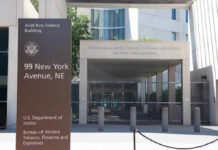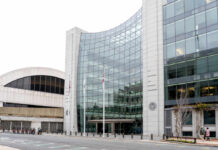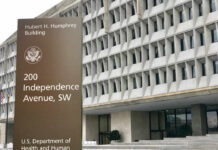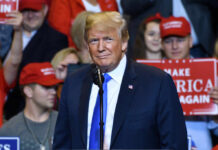
First Republic Bank, one of the nation’s largest banks is receiving nearly $30 billion in deposits to shore up concerns about its viability.
Several large banks agreed to deposit $29 billion in the struggling lender this week following concerns that First Republic may be the third major bank to collapse in less than a week.
BREAKING: First Republic gets $30 billion rescue from biggest US banks https://t.co/mPQPSRd0B3
— Fox News (@FoxNews) March 16, 2023
The four banks, JP Morgan Chase, Citigroup, Bank of America and Wells Fargo offered the struggling bank their capital. While the funds are private, the federal government encouraged the transfer and the effort is backed by American regulators.
In addition, JPMorgan Chase separately offered $70 billion in potential financing.
In particular, First Republic drew concerns because a higher share of its deposits was uninsured relative to the industry average. Its uninsured deposits were third-most, behind only the recently failed Silicon Valley Bank and Signature Bank.
The proposed capital transfer initially caused a rally in First Republic’s stock price but was then followed by a decline in the share prices of a number of banks on Wall Street.
The current banking concern started with the collapse of Silicon Valley Bank (SVB) Mar. 10. The issues surrounding what was the nation’s 20th largest bank sent concern throughout the banking industry and was followed by the failure of Signature Bank, with more than $100 billion in assets Mar. 12.
The assets of SVB were seized by the FDIC, which working with the Federal Reserve and Department of the Treasury, backed all deposits, including those of more than $250,000.
The Federal Reserve also announced that banks would have access to a new Bank Term Funding Program. The Fed stated that the program would offer “loans up to one year in length” to banks and credit unions, as well as “other eligible depository institutions.”
The announcement stated that this program would be “an additional source of liquidity against high-quality securities, eliminating an institution’s need to quickly sell those securities in times of stress.”
In addition, the central bank announced access to up to $25 billion in capital from the Exchange Stabilization Fund operated by the Treasury Department but stated that it does not anticipate that such funding will be necessary.
















